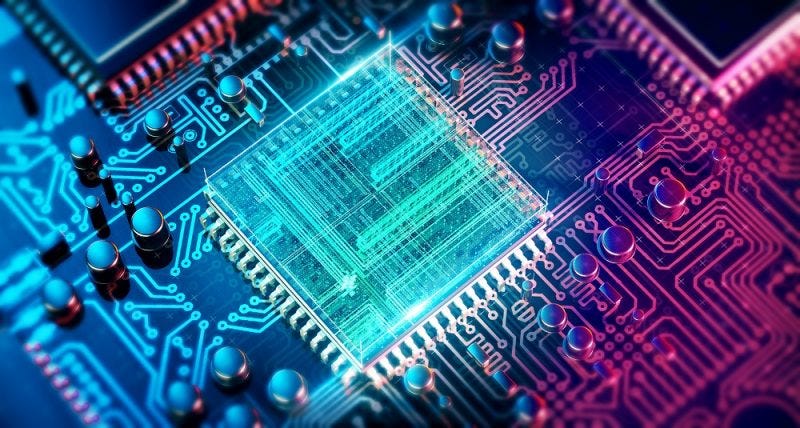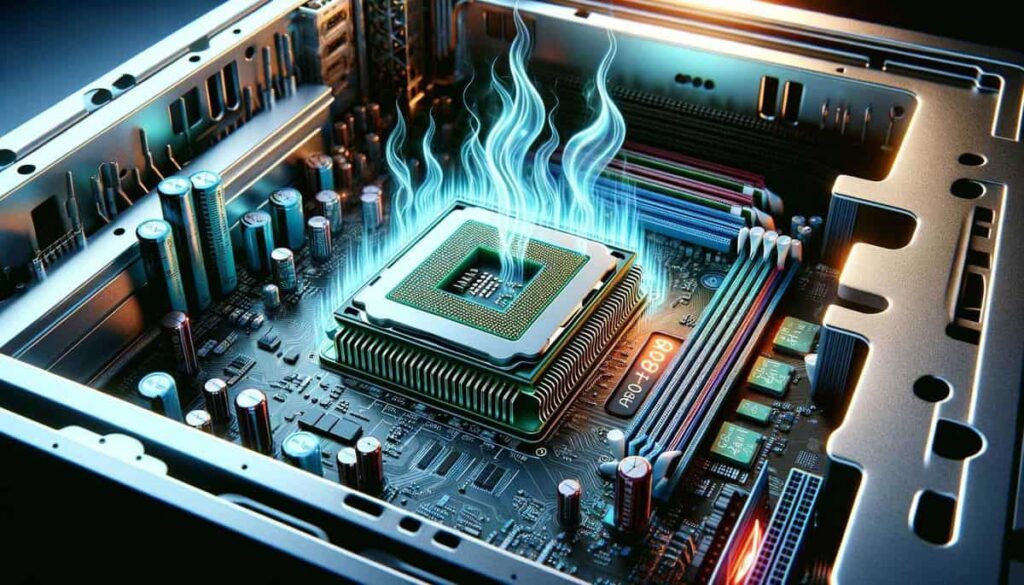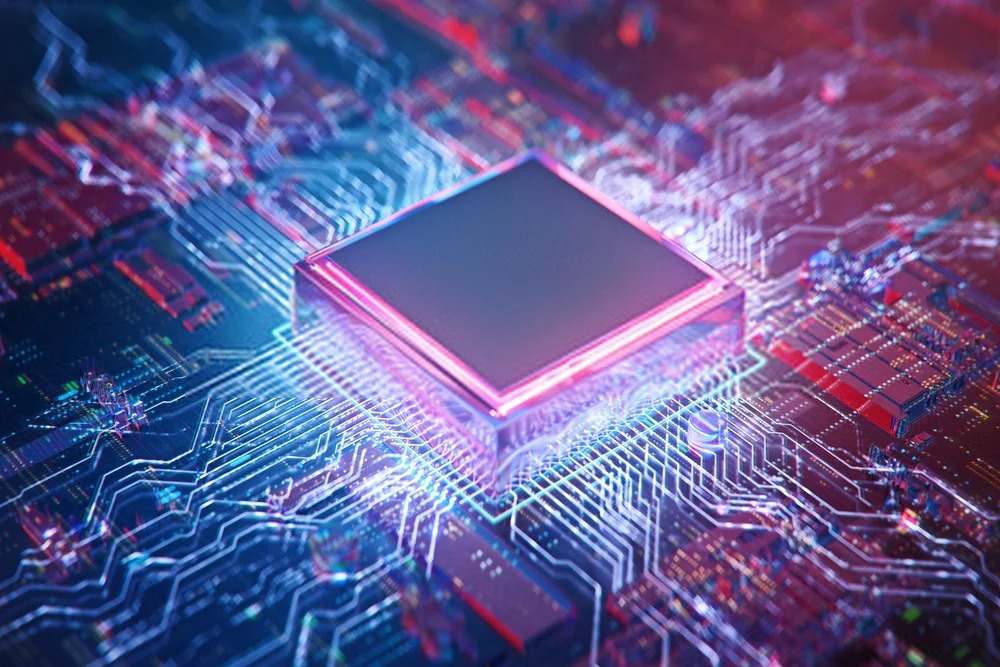When choosing a CPU, understanding how to measure its performance is key to making the right decision.
CPU measurements, like benchmarks, compare the performance between processors. These metrics, such as speed, core count, and efficiency, help evaluate and quantify different processors for an easy, standardized comparison.
In this article, we’ll explore the essential CPU measurements and explain how they impact overall performance, helping you pick the best CPU for your system.
Understanding CPU Measurements for Comparing Processor Performance
When comparing CPUs, several measurements can help you understand which processor is best for your needs.
These metrics include clock speed, the number of cores, threads, cache size, TDP (Thermal Design Power), IPC (Instructions Per Cycle), and performance benchmarks.
Examining these factors gives you a clearer picture of a CPU’s strength and efficiency. Each of these measurements plays a role in how the CPU performs different tasks, from gaming to multitasking.
Clock Speed

Clock speed refers to how fast a CPU can process instructions, measured in gigahertz (GHz). A higher clock speed means the CPU can complete tasks faster, which is great for gaming or single-threaded applications.
However, clock speed alone doesn’t define a CPU’s overall performance. Factors like the number of cores and IPC also matter.
While a faster clock speed improves speed, it works best when combined with other features for balanced performance.
Number of Cores
The number of cores in a CPU determines how many tasks it can handle at once. More cores allow the CPU to multitask better, improving performance when running several applications or performing complex tasks.
Modern CPUs often have multiple cores, ranging from 2 to 16 or more. A higher core count is useful for tasks like video editing, gaming, and running multiple programs simultaneously. More cores help the CPU divide workloads efficiently, resulting in smoother performance.
Threads
Threads are the smaller units of processing within each CPU core. A CPU with more threads can handle more tasks simultaneously, making it great for multitasking or running complex software.
Some CPUs support technologies like hyper-threading or simultaneous multi-threading (SMT), allowing each core to handle two threads.
More threads improve performance in applications that can use them, such as video editing, gaming, and large-scale data processing. ThreadsThreads help a CPU work faster and handle more tasks at once.
Cache Size
Cache size refers to the amount of memory built into the CPU that stores frequently used data. The larger the cache, the faster the CPU can access data, improving performance.
CPUs usually have different levels of cache (L1, L2, L3). The L3 cache is the largest and helps the CPU run tasks more smoothly, especially in multi-core processors.
A bigger cache reduces delays, making the processor more efficient when handling complex tasks or running multiple programs.
Thermal Design Power (TDP)

Thermal Design Power (TDP) measures how much heat a CPU generates under full load, usually in watts. It helps determine how much cooling the CPU needs to work efficiently without overheating.
A higher TDP means the processor generates more heat and may require better cooling solutions, like larger fans or liquid cooling.
Managing TDP is essential for preventing overheating, ensuring stable performance, and extending the lifespan of your CPU, especially during heavy tasks or overclocking.
IPC (Instructions Per Cycle)
IPC, or Instructions Per Cycle, shows how many tasks a CPU can process in a single clock cycle. A higher IPC means the CPU is more efficient, processing more tasks simultaneously, even if its clock speed is lower.
This is crucial for tasks like gaming and software that need quick processing. While clock speed affects speed, IPC impacts the CPU’s overall performance by handling more instructions per cycle, helping the processor work faster and more efficiently with less energy.
Performance Benchmarks
Performance benchmarks measure a CPU’s performance under various conditions, such as gaming, multitasking, or running applications.
These benchmarks give a score that compares different CPUs. Cinebench and Geekbench evaluate how the CPU handles tasks like single-core and multi-core performance.
By looking at benchmark scores, you can understand which CPU will perform best for your specific needs, whether for gaming, content creation, or general use.
Power Consumption
Power consumption refers to how much electricity a CPU uses while running. CPUs with lower power consumption are more energy-efficient, which is helpful for laptops and devices that need longer battery life.
However, CPUs with higher power consumption may provide better performance. The goal is to find a balance between power usage and performance needs.
Lower power consumption also generates less heat, making it easier to keep the CPU cool, but it’s important to consider overall system efficiency.
Overclocking Capabilities
Overclocking is when a CPU runs faster than its base rate to improve performance. Some CPUs are designed with overclocking in mind, allowing users to boost speed for better gaming or productivity.
However, overclocking can lead to higher temperatures and requires better cooling solutions. While it can boost performance, overclocking may shorten the CPU’s lifespan if not done properly. It’s important to weigh the benefits of increased speed against the risks of overheating.
Integrated Graphics
Integrated graphics are built into the CPU, allowing it to handle basic visual tasks like browsing the web, watching videos, and light gaming without needing a separate graphics card.
This can save money and space in systems without requiring high-end graphics. However, a dedicated graphics card is recommended for more demanding tasks like heavy gaming or professional video editing.
Integrated graphics are perfect for everyday computing but unsuitable for intense graphical workloads or advanced gaming.
How to Compare CPUs Effectively
To make the right decision, follow these steps when comparing CPUs:
- Define your needs: Are you gaming, editing videos, or just browsing the web?
- Look at benchmarks: Compare CPUs in tasks similar to your usage.
- Check compatibility: Make sure the CPU works with your motherboard (socket type).
- Balance power & efficiency: Don’t buy a power-hungry CPU for basic tasks.
- Consider future-proofing: Buying a slightly stronger CPU now can save money later.
Example: Intel vs. AMD CPUs
- Intel often has higher single-core performance, making them strong in gaming.
- AMD Ryzen CPUs usually offer better multi-core performance at a lower cost, making them ideal for productivity.
- In recent years, both companies have become very competitive, meaning users can find good options from either brand.
How Do You Compare The Performance Between Processors?
To compare the performance of processors, you need to look at several key factors. Start by checking the clock speed (GHz), which tells you how fast the CPU can process instructions.
Next, consider the number of cores and threads, as more of these allow the CPU to handle multiple tasks simultaneously.
Also, check the cache size, power consumption (TDP), and benchmark scores. These factors help you understand which processor will give you the best performance for your needs.
CPU Are Measurements Used To Compare Performance Between Processors Brain

CPU measurements, like clock speed, core count, cache size, and power consumption, help you compare how different processors perform.
These measurements give insight into how fast, efficient, and capable a processor handles tasks. Just like the brain controls how well a body functions, the CPU controls how well your system runs. Knowing these measurements helps you pick the right CPU for your needs, ensuring smooth performance.
Cpu Are Measurements Used To Compare Performance Between Processors Qui
When comparing CPUs, key measurements such as clock speed, core count, threads, and cache size are important.
These help determine how fast and efficient a processor will be when running various tasks. Benchmarks, power consumption, and TDP also give insights into the CPU’s overall performance.
By understanding these numbers, you can choose which CPU is best for gaming, work, or general use based on your specific needs.
Which Of The Following Is Not True About The Relationship Between The CPU and System Performance
The CPU plays a major role in overall system performance but is not the only factor. For example, a powerful CPU might perform poorly if paired with slow storage or insufficient RAM.
Similarly, a balanced system with a good CPU, enough RAM, and fast storage typically delivers better overall performance.
So, while the CPU is important, other components like memory and storage also influence system performance.
Future of CPU Performance Measurements
With the rise of AI workloads, CPUs are evolving to include dedicated AI accelerators. Measurements in the future will focus not only on GHz and cores but also on AI performance, energy efficiency, and integrated graphics power.
As technology progresses, users will need to consider these new metrics alongside traditional benchmarks.
FAQs
1. What is CPU performance measurement?
CPU performance measurement evaluates how well a processor performs tasks, focusing on speed, efficiency, and multitasking abilities using factors like clock speed, cores, and benchmarks.
2. What is CPU measurement?
CPU measurement assesses clock speed, core count, threads, and cache size to understand how efficiently a processor handles tasks.
3. How to compare two CPU performance?
To compare two CPUs, check key metrics like clock speed, number of cores, threads, benchmark scores, and cache size to see which handles tasks better.
4. What does CPU usage measure?
CPU usage measures how much of the processor’s capacity is used by tasks or applications. Higher usage means the CPU is working harder.
5. What is a measurement used to compare performance between processors?
Performance between processors is often compared using benchmarks, which evaluate factors like clock speed, core count, cache size, and multi-core performance.
6. What does CPU do for performance?
The CPU processes instructions and tasks, directly affecting your system’s performance. A faster CPU means quicker task execution, improving overall system speed and multitasking ability.
7. What is a common measure of performance for a processor?
Clock speed (GHz) is a common measure of processor performance, showing how fast a CPU can execute instructions, though other factors like cores and cache also matter.
8. What is the difference between i5 and i7 processors?
The i7 processor is generally faster and more powerful than the i5, with more cores, higher clock speeds, and better multitasking capabilities, making it ideal for intensive tasks.
9. What is the best way to measure CPU performance?
The best way to measure CPU performance is through benchmarks, which assess real-world tasks like gaming, multitasking, and processing power, providing a clear performance score.
10. What are CPU performance metrics?
CPU performance metrics include clock speed, core count, threads, cache size, IPC, TDP, and benchmark scores. These help evaluate a processor’s efficiency and capabilities.
Conclusion
In conclusion, understanding CPU measurements such as clock speed, cores, threads, and benchmarks is crucial for comparing processor performance. By evaluating these factors, you can make an informed decision and choose the best CPU for your needs, whether for gaming, productivity, or general use, ensuring optimal performance.















